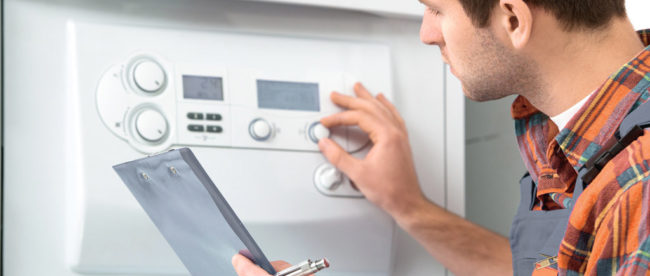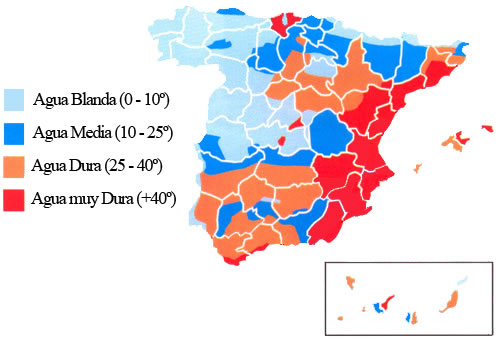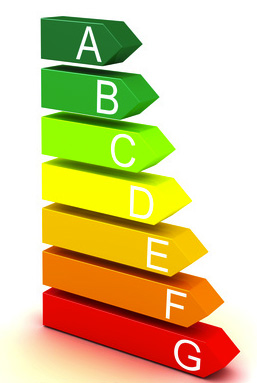Dropson electronic water softener, a plus in energy efficiency for your home

Policies that promote improved energy efficiency in households are becoming more frequent and diverse, as are the options available to consumers to achieve greater savings.
An efficient, economic and ecological solution that should not go unnoticed is the installation of an electronic descaler. This anti-scale system guarantees energy savings by achieving optimum thermal exchange conditions between the primary and secondary circuits of the installations, as well as offering protection against accelerated corrosion. Reducing lime in pipes and electrical appliances is therefore a solution that generates enormous energy savings.
The professionals of the treatment of sanitary hot water have known for a long time the damages that can cause the deposits of lime in the facilities. On the other hand, water suppliers, builders and homeowners are now beginning to discover the effects of lime in contact with heating elements, the main problem of which is the reduction of energy efficiency.
Faced with this situation, the electronic water softener is an efficient, economic and ecological measure.
But what is energy efficiency? Energy efficiency consists of reducing energy consumption, maintaining the same services and ensuring supply, protecting the environment and promoting sustainability.
.
Energy consumption under hard water conditions
The hardness of water depends on the amount of minerals it contains, in particular magnesium and calcium salts. Water commonly known as «hard» has a high concentration of salts, while «soft» water contains very little.
In the Spanish territory there are regions with a high degree of water hardness (example of Dropson installation). Most of them are located near the coast, specifically in the south and east of the peninsula, with a hard water (25- 40°fH) or very hard (more than 40°fH).

Homeowners who use water that is considered hard or very hard often find a large amount of lime in their household appliances and hot water installations, something that could be avoided with an anti-scale system that is appropriate to the type of installation, the flow rate and the hardness of the water. But the biggest problem, more difficult to locate and eliminate, is the high energy consumption.
Lime incrustations in pipes and electrical appliances generate insulation that affects the energy used. The more lime there is incrusted, the more energy will be needed to heat the same amount of water.
Approximately 30% of final energy consumption is used every day for building maintenance (heating, cooling, hot water consumption, ventilation, lighting, etc.). This percentage tends to increase gradually.
The Carbon Trust, a British company that advises organisations on their energy efficiency, estimates that every millimetre of lime on a heating element increases energy consumption by 7%. In hard water conditions, lime produces about 1 mm per year.
.
Current regulations on energy efficiency
In 2013, Spain joined the European Union’s Europe 2020 strategy to tackle climate change with measures such as reducing greenhouse gas emissions, using renewable energies and improving energy efficiency.
The regulations relating to energy in buildings focus on the Energy Efficiency Certification of buildings. As with household appliances, this is a basic procedure for knowing how much energy a home consumes annually, including the production of hot water, heating, lighting, refrigeration and ventilation. In other words, it is the estimation of the consumption necessary to satisfy the energy demand of the building under normal operating and occupancy conditions.
The current regulations also include the Regulation on Thermal Installations in Buildings, a programme of aid and financing. The main requirements of this regulation refer to greater energy efficiency, better insulation of equipment, the use of renewable energies and the gradual disappearance of less efficient equipment, among other initiatives.
The need to promote energy efficiency is an aspect of which homeowners and consumers in general are increasingly aware. This is why, in order to increase energy savings, people are more often looking for economic and ecological solutions, such as certain water treatment systems.
.
An economical and ecological solution
Traditional antiscale systems, known as «ion exchange» decalcifiers, introduce salt into the water to compensate for the effect of calcium. This is a chemical system that releases sodium, which encourages accelerated corrosion of the facilities.
However, there are other decalcifiers that use a physical water process to prevent the formation of lime through the crystallization of calcium and carbon by magnetic impacts. These anti-scale systems do not require salt for maintenance. This is the case of the Dropson electronic anti-scaling system, which prevents the corrosion caused by the salt and requires no maintenance.
The Dropson electronic water softener is an economical option, as it saves energy by preventing the formation of lime in pipes and electrical appliances, while progressively dissolving the lime already embedded in the installations. The energy saving is assured, since the optimal conditions of thermal exchange between the primary and secondary circuits are obtained.
But it is also an ecological solution, as it does not emit CO₂ into the atmosphere, as well as any chemical or salt waste.
.

